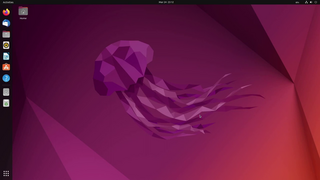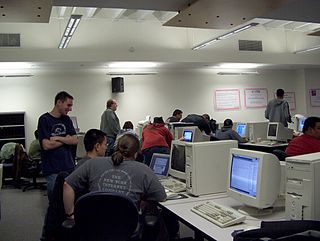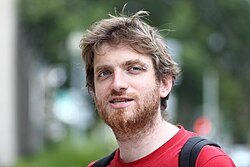
Debian, also known as Debian GNU/Linux, is a Linux distribution composed of free and open-source software and optionally non-free firmware or software developed by the community-supported Debian Project, which was established by Ian Murdock on August 16, 1993. The first version of Debian (0.01) was released on September 15, 1993, and its first stable version (1.1) was released on June 17, 1996. The Debian Stable branch is the most popular edition for personal computers and servers. Debian is also the basis for many other distributions that have different purposes, like Proxmox for servers, Ubuntu or Linux Mint for desktops, Kali for penetration testing, and Pardus and Astra for government use.

GNU is an extensive collection of free software, which can be used as an operating system or can be used in parts with other operating systems. The use of the completed GNU tools led to the family of operating systems popularly known as Linux. Most of GNU is licensed under the GNU Project's own General Public License (GPL).

A Linux distribution is an operating system made from a software collection that includes the Linux kernel and often a package management system. Linux users usually obtain their operating system by downloading one of the Linux distributions, which are available for a wide variety of systems ranging from embedded devices and personal computers to powerful supercomputers.

Tenés Empanadas Graciela is a turn-based strategy game distributed by several popular Linux distributions. The idea for this free and open-source software program came from the board game TEG, which itself is based on the popular Risk game but differs in many aspects of the rules.

Canonical Ltd. is a UK-based privately held computer software company founded and funded by South African entrepreneur Mark Shuttleworth to market commercial support and related services for Ubuntu and related projects. Canonical employs staff in more than 70 countries and maintains offices in London, Austin, Boston, Shanghai, Beijing, Taipei, Tokyo and the Isle of Man.
Technical variations of Linux distributions include support for different hardware devices and systems or software package configurations. Organizational differences may be motivated by historical reasons. Other criteria include security, including how quickly security upgrades are available; ease of package management; and number of packages available.

Free and open-source software (FOSS) is software that is available under a license that grants the right to use, modify, and distribute the software, modified or not, to everyone free of charge. The public availability of the source code is, therefore, a necessary but not sufficient condition. FOSS is an inclusive umbrella term for free software and open-source software. FOSS is in contrast to proprietary software, where the software is under restrictive copyright or licensing and the source code is hidden from the users.

Martin Michlmayr is a free and open-source software advocate and Debian developer, formerly president of Software in the Public Interest.
This comparison only covers software licenses which have a linked Wikipedia article for details and which are approved by at least one of the following expert groups: the Free Software Foundation, the Open Source Initiative, the Debian Project and the Fedora Project. For a list of licenses not specifically intended for software, see List of free-content licences.

gNewSense was a Linux distribution, active from 2006 to 2016. It was based on Debian, and developed with sponsorship from the Free Software Foundation. Its goal was user-friendliness, but with all proprietary and non-free software removed. The Free Software Foundation considered gNewSense to be composed entirely of free software.

In the 1950s and 1960s, computer operating software and compilers were delivered as a part of hardware purchases without separate fees. At the time, source code, the human-readable form of software, was generally distributed with the software providing the ability to fix bugs or add new functions. Universities were early adopters of computing technology. Many of the modifications developed by universities were openly shared, in keeping with the academic principles of sharing knowledge, and organizations sprung up to facilitate sharing. As large-scale operating systems matured, fewer organizations allowed modifications to the operating software, and eventually such operating systems were closed to modification. However, utilities and other added-function applications are still shared and new organizations have been formed to promote the sharing of software.
The following outline is provided as an overview of and topical guide to free software and the free software movement:
Debbugs is the software powering the Debian project's issue tracking system. Uniquely it doesn't have any form of web-interface to edit bug reports – all modification is done through email. Debbugs was mainly written by Ian Jackson, former Debian project leader.

The GNU General Public License is a series of widely used free software licenses, or copyleft, that guarantee end users the four freedoms to run, study, share, and modify the software. The license was the first copyleft for general use, and was originally written by Richard Stallman, the founder of the Free Software Foundation (FSF), for the GNU Project. The license grants the recipients of a computer program the rights of the Free Software Definition. The licenses in the GPL series are all copyleft licenses, which means that any derivative work must be distributed under the same or equivalent license terms. It is more restrictive than the Lesser General Public License, and even further distinct from the more widely-used permissive software licenses BSD, MIT, and Apache.

A Linux User Group or Linux Users' Group (LUG) or GNU/Linux User Group (GLUG) is a private, generally non-profit or not-for-profit organization that provides support and/or education for Linux users, particularly for inexperienced users. The term commonly refers to local groups that meet in person but is also used to refer to online support groups that may have members spread over a very wide area and that do not organize, or are not dependent on, physical meetings. Many LUGs encompass FreeBSD and other free-software / open source Unix-based operating systems.

Linspire is a commercial operating system based on Debian and Ubuntu and currently owned by PC/OpenSystems LLC. It had been owned by Linspire. Inc. from 2001 to 2008, and then by Xandros from 2008 to 2017.

Q4OS is a light-weight Linux distribution, based on Debian, targeted as a replacement for operating systems that are no longer supported on outdated hardware. The distribution is known for an addon called XPQ4, which adds themes intended to replicate the look and feel of Windows 2000 and Windows XP.












